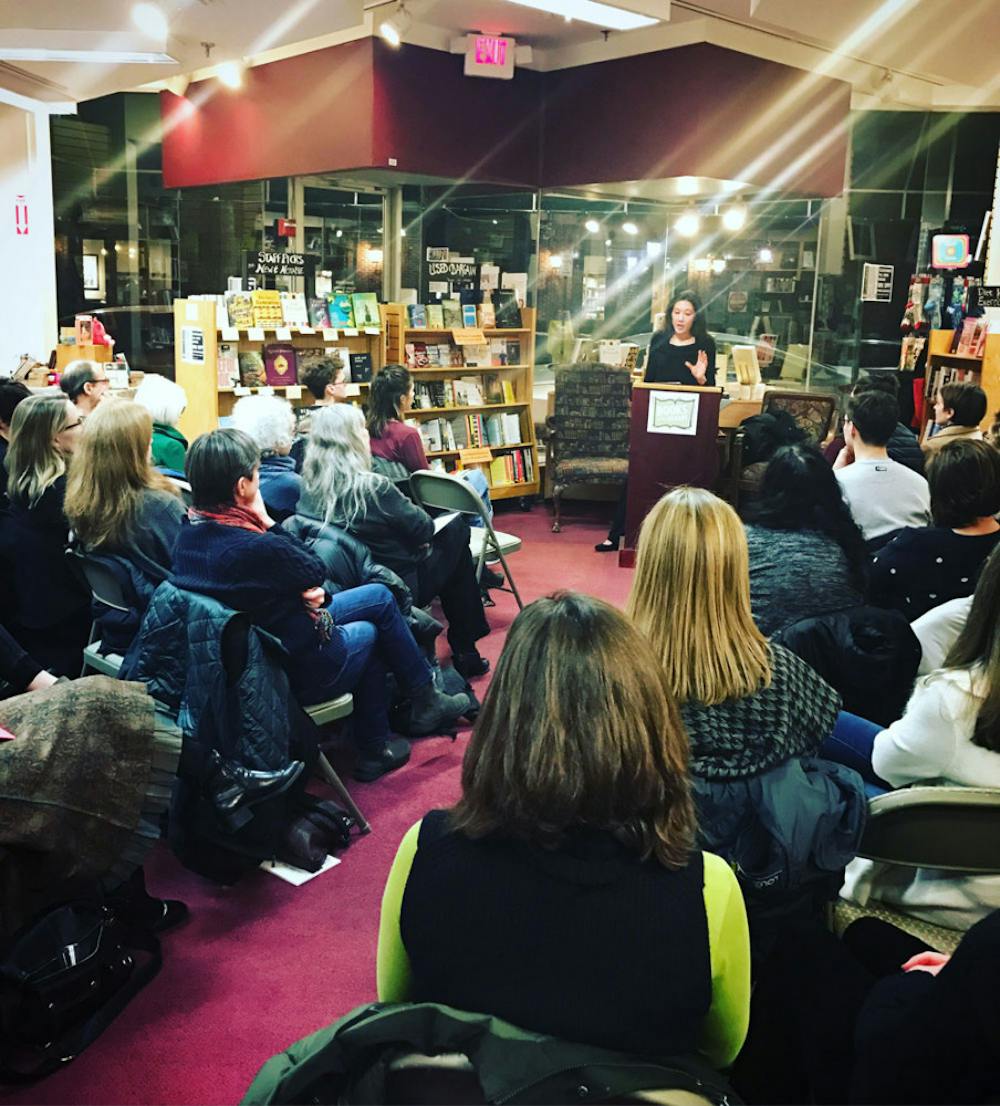Decorated poetess Tina Cane and up-and-coming poet Keegan Lester immersed Books on the Square’s audience in articulate elegance at a poetry reading Friday night.
The event was part of the bookstore’s initiative to bring in local writers, said Francesgrace Ferland, a bookseller at Books on the Square.
“Most authors have some sort of local connection,” Ferland said. Cane herself was recently named Rhode Island’s poet laureate.
Cane’s new role necessitates a heightened level of engagement in the public sphere. “It’s new for me. Being a poet is typically very solitary,” she quipped to the crowd.
Embracing her newfound responsibility, Cane underscored the relevance of poetry today given the United States’ current political climate.
“I’ve been thinking about history, particularly my place as a poet-witness to history,” Cane said.
She emphasized literature’s capacity for protest and the universality of its humanity throughout her reading, cementing its place in challenging power structures and political gridlock.
“As a poet, I will continue fighting. Writing is fighting,” Cane said.
In light of President Donald Trump’s immigration ban, both writers prefaced their work with readings culled from the affected nations’ poetic traditions. Cane opened with Iranian poetry from Mohsen Emadi, while Lester read Sudanese poetry by Safia Elhillo. Each of the readings heightened the event’s poignancy.
“(The poems’ inclusion) was very timely and on-point,” Ferland said.
Cane’s poetry drew on her experiences growing up in Hell’s Kitchen, New York. With lines replete in references to the area’s “seedy alley, subway and moon,” Cane’s works both submerged the reader in her adolescent coming-of-age among bodegas and the East Village and facilitated the poet’s own self-discovery.
“I write to understand,” Cane said. “I never am able to think of how to describe my own experience, so writing is a way of revealing the things that I don’t really understand.”
Cane’s poetry also incorporated a measure of intertextuality. The works read played off of those produced by venerated writers Elena Ferrante and Federico Garcia Lorca, cementing the poet’s position in the broader literary tradition.
Lester’s reading provided a sharp contrast to Cane’s poetry, juxtaposing her cultivated urbanity with a sense of heartland sincerity. Speaking with a slow, unaffected drawl, the West Virginia native touched on everything from orcas to football to the plight of the working class, all through the lens of his distinctive earnestness.
“I wanted to prove that the mundane could also be beautiful,” Lester said. “I didn’t truly realize I was a good poet until a few years after my MFA program, when my mom told me she could understand what I was writing,” he said.





